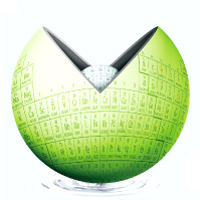
Published for geochemistry community from Geochemical Society of Japan.
Relations of the earth's metallogenetic history to possible chemical evolution of oceans
Geochemical Journal, Vol. 10, No. 1, P. 43-46, 1976
ABSTRACT
The mineralization of iron (“iron formations”) seems to have been replaced in apparent production by those of other metals such as copper, zinc, and lead (stratiform massive sulfide ores, limestone-lead-zinc ores, “porphyry coppers”, and other vein type sulfide ores) about 1.9 × 109 years ago, which corresponds to the time when oxidized sediments are believed to have begun to appear globaly on the earth's surface. This would strongly suggest that the evolution of ore types also is closely related with the development of oceanic and atmospheric oxygen during geologic time. The model for the evolution of metallic abundances in the oceans proposed in this paper can give a reasonable account of the evolution of ore types. The author's idea of ocean water origin of “ore solutions” may be acceptable throughout the geologic history.- Published : 1976-03-20
- Released on J-STAGE : -
- Received : 1975/04/07
- Accepted : -
- DOI : https://doi.org/10.2343/geochemj.10.43
- J-STAGE URL : https://www.jstage.jst.go.jp/article/geochemj1966/10/1/10_1_43/_article/-char/ja
- J-Online ISSN: 1880-5973
- Print ISSN : 0016-7002
- ISSN-L : 0016-7002
All Issues
- Vol.59, 2025
- Vol.58, 2024
- Vol.57, 2023
- Vol.56, 2022
- Vol.55, 2021
- Vol.54, 2020
- Vol.53, 2019
- Vol.52, 2018
- Vol.51, 2017
- Vol.50, 2016
- Vol.49, 2015
- Vol.48, 2014
- Vol.47, 2013
- Vol.46, 2012
- Vol.45, 2011
- Vol.44, 2010
- Vol.43, 2009
- Vol.42, 2008
- Vol.41, 2007
- Vol.40, 2006
- Vol.39, 2005
- Vol.38, 2004
- Vol.37, 2003
- Vol.36, 2002
- Vol.35, 2001
- Vol.34, 2000
- Vol.33, 1999
- Vol.32, 1998
- Vol.31, 1997
- Vol.30, 1996
- Vol.29, 1995
- Vol.28, 1994
- Vol.27, 1993
- Vol.26, 1992
- Vol.25, 1991
- Vol.24, 1990
- Vol.23, 1989
- Vol.22, 1988
- Vol.21, 1987
- Vol.20, 1986
- Vol.19, 1985-1986
- Vol.18, 1984
- Vol.17, 1983
- Vol.16, 1982
- Vol.15, 1981
- Vol.14, 1980
- Vol.13, 1979
- Vol.12, 1978
- Vol.11, 1977
- Vol.10, 1976
- Vol.9, 1975
- Vol.8, 1974
- Vol.7, 1973
- Vol.6, 1972-1973
- Vol.5, 1971
- Vol.4, 1970-1971
- Vol.3, 1969-1970
- Vol.2, 1968
- Vol.1, 1966-1967
Current Issue:
Stats:
Impact Factor: 1.6 (2024)
Submission to final decision: 9.6 weeks (2022)




